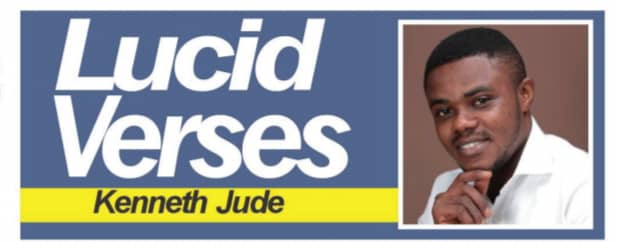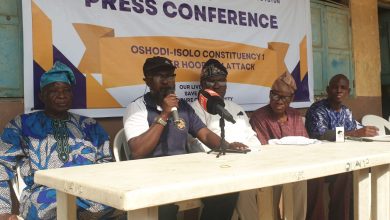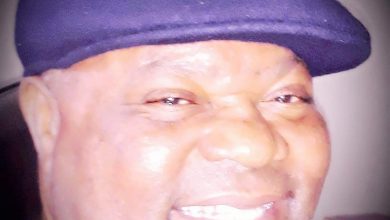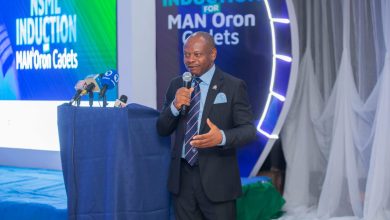
Today, we roll out the drums to celebrate 26 years of unbroken democratic practice in Nigeria. It has been quite a journey that has seen the good, the bad and the ugly.
While this day would ordinarily be marked with pomp and ceremonies, not a few Nigerians will go about their daily activities unbothered by whatever celebrations will go on today.
The reasons are all very familiar, as the harsh realities of a wobbling nation stare us in the face menacingly.
There was wild celebration across the length and breadth of Nigeria when Nigeria transitioned from military rule to democratic governance. Having endured iron-fist rule under the jackboots of the military government, Nigerians finally heaved a sigh of relief in 1999 when the nation embraced democratic governance through the election of President Olusegun Obasanjo.
There was great hope and relief for Nigerians who, for once, looked forward with great anticipation to a governance that would be empathetic, responsive and tailored towards providing basic amenities for the citizens.
But alas, the converse has sadly proved to be the case. From policy summersaults to bastardization of institutions, biting insecurity, economic woes, maddening assault on the public till and more have combined to slow down the progress of the nation.
Today, Nigerians are not very sure if they are under democratic governance because of the harsh economic and social realities that confront them daily. The basic elements that make democratic governance meaningful are nearly absent phenomena in Nigeria.
Read Also: NDDC, Niger Delta Leaders And The Corruption Stigma
For 26 years, how have we fared when talking about the rule of law? How have we respected human rights? Have we been able to conduct free and fair elections as was the case in the annulled 1993 general elections that have led to today’s celebration? What has happened to the separation of powers? How accountable are our leaders to Nigerians? How well are the citizens participating in governance? How have we fared in the area of socio-economic development?
Well, while we can at least celebrate the fact that the worst of democratic governance is better than the best of military rule, Nigerians deserve more. God and nature have blessed us with abundance in human and material wealth, hence we have no reason to be suffocated daily by hunger, social inequalities, insecurity, bad governance and the like. There is no reason any Nigerian should go to bed angry and hungry. But these are unfortunately our realities because our collective patrimony is being mismanaged by a few privileged lot who have made larceny a lifestyle.
What should be for the majority is being frittered away by a minority who care little or not about the long-suffering Nigerians who are sadly at the receiving end of misgovernance orchestrated by a ruling class that has held the nation, hostage, hostage through policies that are not tailored towards making life better for the people.
Elections here have become a tale of woes and lamentations. Votes do not count. Our leaders have perfected the dark arts of rigging with impunity in active connivance with institutions that should uphold law and order. Can we say today of the Independent National Electoral Commission (INEC) what we said about the Humphrey Nwosu-led National Electoral Commission (NEC) that conducted the freest and fairest election in 1993?
After the 1993 polls were adjudged to be the best in the history of Nigeria, subsequent elections have been marred by daylight rigging, ballot box snatching and stuffing, man-made irregularities and lots more. Sadly, institutions that should ensure that we keep to the rules are themselves part of the problem.
Our security agencies are used by the desperate ruling class to carry out rigging. Now, the judiciary, previously the last hope of the common man, has also been caught in the web of compromise, hence giving our politicians the impetus to holler “go to court” after crudely and violently rigging their way to “victory”.
Using the last general elections as a case study, one with a sincere heart would hardly argue that Mr Peter Obi of the Labour Party did not fare better than the results announced by INEC. For a man who won the Federal Capital Territory and Lagos State (the homestead of the current President), you cannot but wonder how he did not get the trophy. Again, how does one explain to a sane mind that the same Labour Party that won in Lagos State could not win in Rivers State?
Just how do you explain that travesty?
What Nigerians experienced in the 2023 elections is not new though. It has been the case since 2003 with the worst of them all in 2007 under the watch of then President Olusegun Obasanjo who oversaw a massively rigged election that forced the beneficiary, the late Umaru Musa Yar’Adua to admit that the election that brought him to power was flawed. At least, he was honest and made moves to correct the anomaly by setting up the Uwais-led Committee on Electoral Reforms. But not for today’s politicians who will immediately attribute their stolen victory to God! We are in a fix!
Today, democratic institutions have been bastardized so much that Nigerians no longer have hope or any scintilla of trust in them. Need I talk about the Police? Even the once revered military and the like? In the military, we talk about sabotage. In the police, bribery and corruption is endemic. The judiciary has become a shadow of its former hallowed self. Where then do we run to?
To get it right, we must ensure that our institutions are not only respected but seen to be greater than individuals as against what is obtainable today where certain individuals wield more powers than some of our institutions. So, with just a phone call, a criminal can be set free because he has affiliations with one big man out there. We must stem this dangerous tide if we must truly enjoy this democracy.
With our presidential system of government, there should be checks and balances to ensure that each of the three arms is operating within the ambit of the law in the discharge of its duties, but can we say that this is the practice in Nigeria today? No. We have seen both at the state and federal levels how the parliament have descended so low as to be in bed with the executive, thereby giving the executive the impetus to take the people for a long rough ride with highfalutin impunity and discomfiting arrogance. The judiciary which should be the umbrella that gives a semblance of protection to the hoi polloi has since suffered the same fate as the parliament. So, in all, it is the average Nigerian that bears the brunt of these organized anomalies.
It is no wonder why Nigeria is still grappling with existential problems despite embracing democracy since 1999. The truth is that we are not yet there. And the indicators are sadly grim. The people who should have a voice have been silenced with hunger and piecemeal peanuts before elections.
So, where do we go from here? You tell me.
Narrowing it down to Akwa Ibom, the pioneering efforts of His Excellency, Obong Victor Attah deserves commendation. At any rate, his vision was clear and mission undoubted. To date, he remains the only pan-Akwa Ibom State governor. He cared not where he came from but Akwa Ibom. His projects were for Akwa Ibom people, not necessarily where he comes from in Akwa Ibom. The location for any project for him was where it suited most, not about his local government area. He set the state on a solid foundation for development, did a clean job and handed it over to Chief Godswill Akpabio in 2007.
Akpabio, now Senate president, came on the mantra of ‘Uncommon Transformation’. He was aggressive and passionate about development. Unfortunately, though, his administration was accused of profligacy and was marred by increased insecurity. Be that as it may, he did his best and left a mark for his successor, Mr Udom Emmanuel, who took off from there.
Under the Udom Emmanuel-led administration, the state continued to witness unprecedented successes in road construction and other infrastructure. But his undoing was largely non-payment of pensions and gratuities which led to prolonged jeremiad and protests across the state. Most of his much-touted industries are nowhere to be found two years after he left office. More so, a lot of people feel he ran the state with pride and arrogance. But then, it was not all gloom under the Onna-born financial expert. He left the chair for Pastor Umo Eno who has recently defected to the All Progressives Congress (APC).
Udom has kept a sealed lip over the latest development. But it is widely believed he is not in the same boat as his godson. Will there be fissures in the walls of their relationship on account of this development? Only the passage of time will determine that.
For Umo Eno, in his kitty now is the yam and knife. He has spent two years in office already. All eyes are on him as he inches towards completing his first term in office. Will he, despite defecting to APC, have a smooth ride to Government House to do his second term? Now a few stakeholders and major political parties have endorsed him so far. Will these endorsements remain intact when the chips are down? The days ahead will be interesting.
It is time Nigerians had a good feeling of democracy. The right to choose their leaders must be handed back to them. They have lost that power due to wanton rigging and manipulations. But it is time things changed for good. If we truly practise democracy, Akwa Ibom and indeed Nigeria will be the better for it.
Are we ready?




